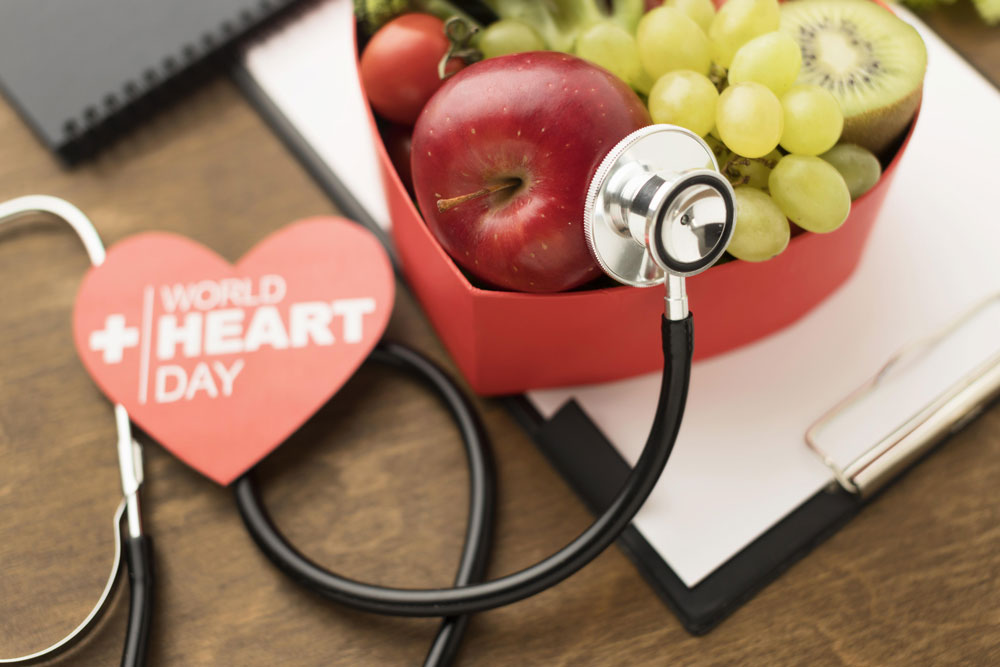Diet and Lifestyle Recommendations for Cardiovascular Diseases
Cardiovascular diseases are a significant global health issue, and a substantial portion of these diseases is closely linked to dietary and lifestyle habits. Fortunately, there are many steps you can take to prevent or reduce the risk of cardiovascular diseases. These steps encompass lifestyle changes and diet in cardiovascular diseases.
Why Is Diet Important in Cardiovascular Diseases?
Diet in cardiovascular diseases plays a crucial role because a healthy diet not only supports heart and vascular health but also can reduce the risk of these diseases or slow down their progression.
Why Is Lifestyle Important in Cardiovascular Diseases?
Lifestyle is critical in cardiovascular diseases because many risk factors for cardiovascular diseases are closely associated with lifestyle habits. Adopting a healthy lifestyle is essential for controlling these risk factors, which affect the development and management of these diseases.
Diet and Lifestyle Recommendations
Diet and lifestyle recommendations for cardiovascular diseases include:
Healthy Eating Habits
A healthy diet can assist in maintaining your heart health. Here are some heart-friendly dietary recommendations:
- Low-Fat, Low-Cholesterol Diet: Avoid saturated fats and trans fats, which can raise cholesterol levels. Limit sources such as fried foods, fast food, margarine, and solid fats. Opt for healthier unsaturated fats like olive oil, avocado, salmon, and nuts.
- Sodium Restriction: High sodium intake can increase blood pressure. Limit your daily sodium intake and reduce processed foods, canned goods, and salty snacks. Enhance the flavor of your meals with natural seasonings like spices, herbs, and lemon juice instead of salt.
- High-Fiber Foods: Consume foods rich in fiber, such as whole grains, fruits, vegetables, legumes, and oats. Fiber can regulate cholesterol levels and improve digestive health.
- Fresh Fruits and Vegetables: Include plenty of fruits and vegetables rich in vitamins, minerals, and antioxidants in your diet. They support vascular health and reduce inflammation.
- Minimizing Processed Foods: Avoid processed foods and sugary beverages, as they are often high in calories and unhealthy fats.
- Fish and Omega-3 Fatty Acids: Incorporate fatty fish like salmon, tuna, sardines, and mackerel into your diet to provide heart-healthy omega-3 fatty acids.
- Protein Sources: Choose lean protein sources like chicken, turkey, lean beef, and legumes.
- Reduced Sugar Intake: Limit your consumption of sugary foods and drinks to reduce the risk of diabetes.
- Portion Control: Be mindful of portion sizes and avoid overeating, as excessive calorie intake can lead to weight gain.
- Alcohol Limitation: Restrict alcohol intake or preferably abstain from it, as excessive alcohol consumption can increase the risk of heart disease.
- Healthy Snacks: Opt for nutritious snacks like almonds, walnuts, or yogurt.
Regular Exercise
Aside from dietary changes, physical activity is a crucial aspect of improving heart health. Aim for at least 150 minutes of moderate-intensity aerobic exercise per week or 75 minutes of vigorous aerobic exercise. Include strength-training activities as well.
Quit Smoking
Smoking increases the risk of cardiovascular diseases. While quitting may not show immediate effects, it can significantly improve your heart health in the long term.
Limit Alcohol Consumption
Excessive alcohol consumption can harm your heart health. If you consume alcohol, do so in moderation.
Manage Stress
Chronic stress can increase the risk of cardiovascular diseases. Learning and implementing stress management techniques can help reduce this risk.
Regular Medical Check-ups
Regular doctor visits and health check-ups can aid in early detection of cardiovascular diseases. Regularly monitor your blood pressure, cholesterol levels, and other risk factors.
Set Healthy Weight Goals
If you are overweight, aim to achieve a healthy weight. Healthy weight loss can reduce the risk of it.


